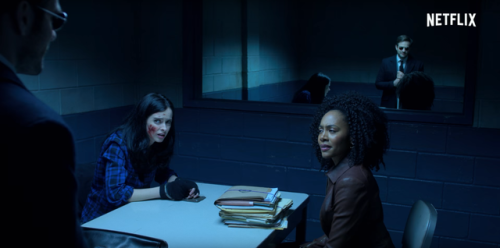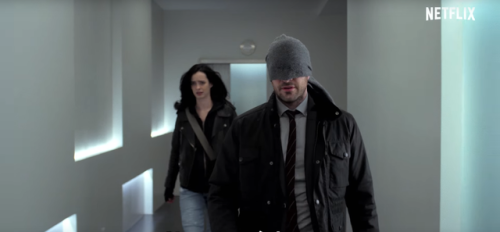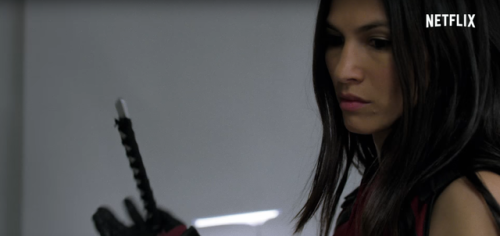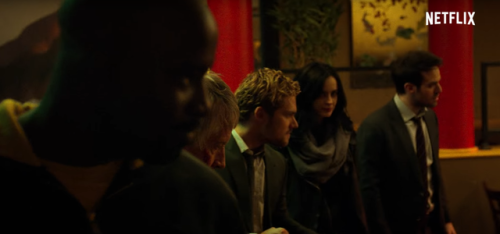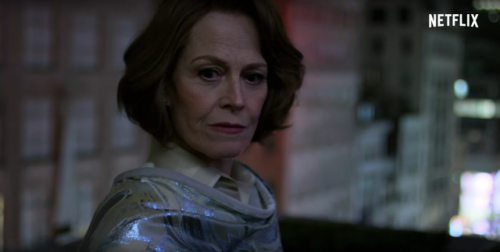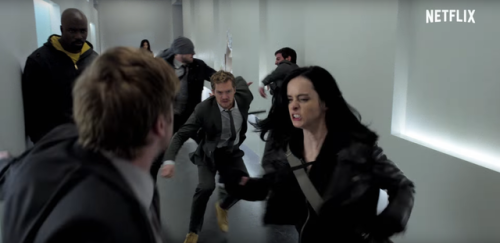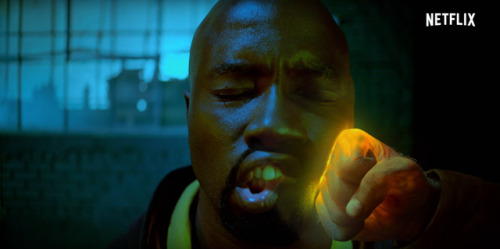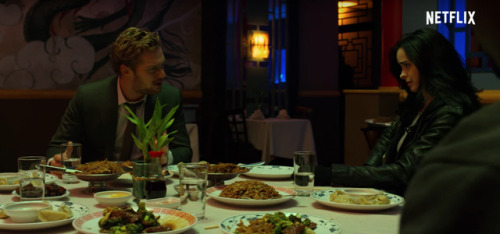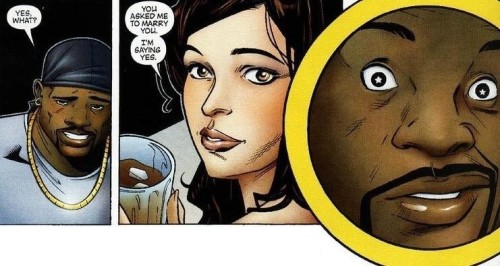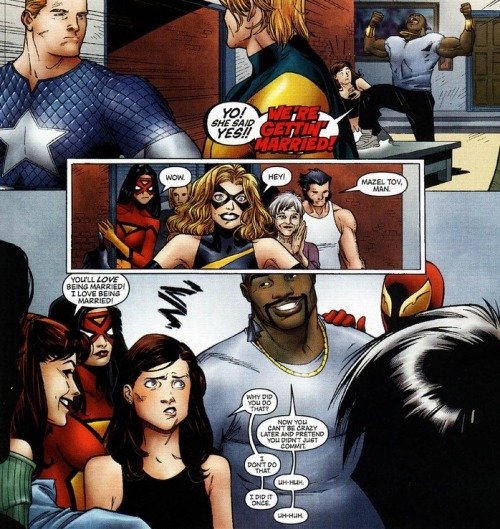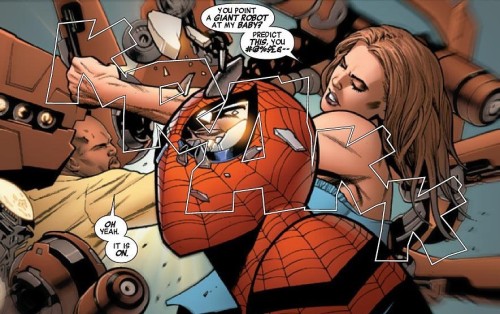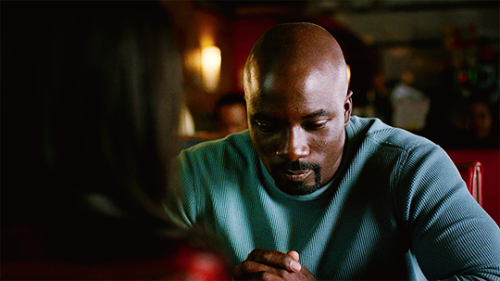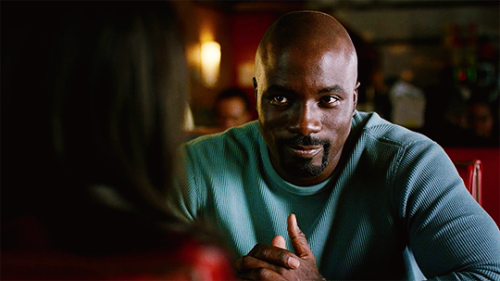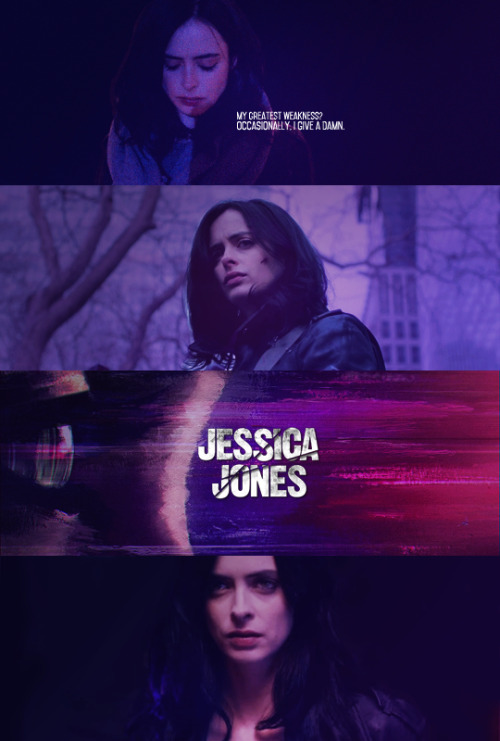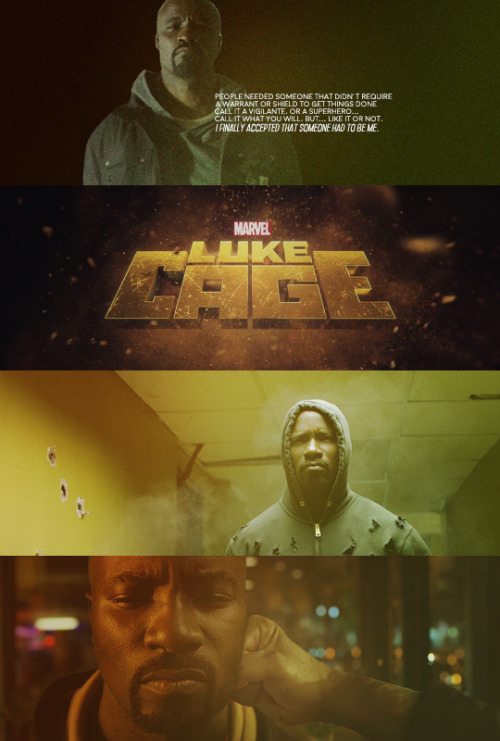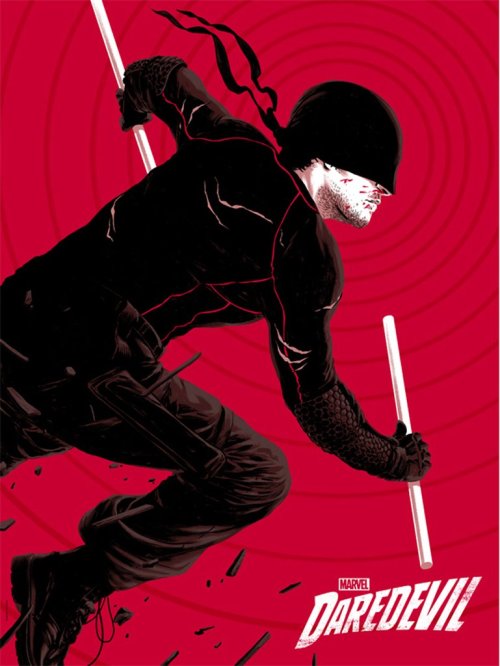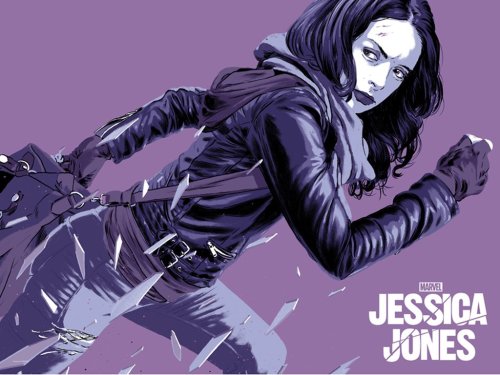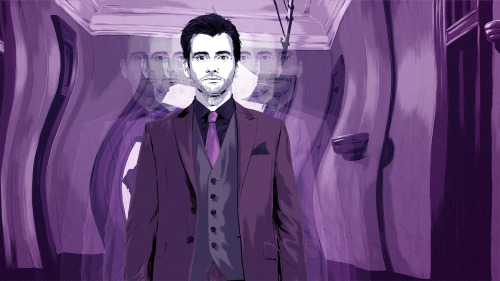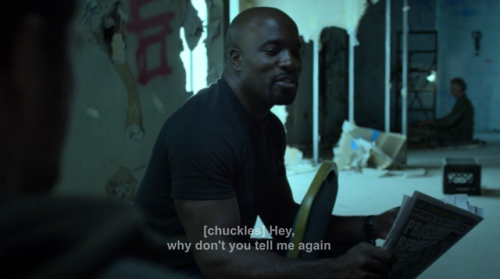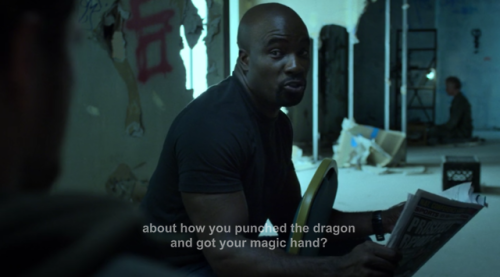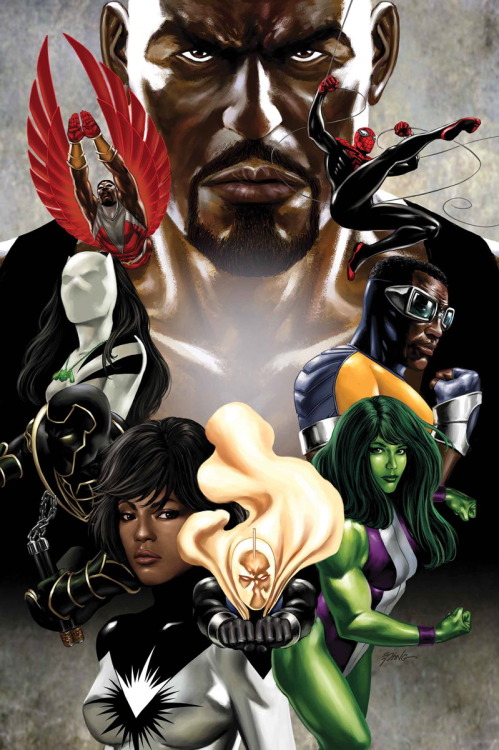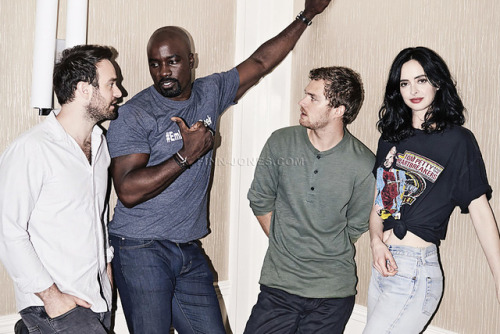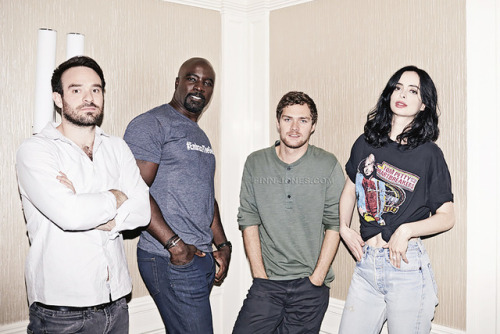#luke cage
Marvel’s Luke Cage → 1x01: Moment of Truth
I’m not for hire. But you have my word, ma'am. I’ve got you.
Post link
I just finished the final season of Jessica Jones on Netflix and overall I feel fairly ambivalent about it. I think the first season was by far the show’s strongest and I felt like the show lost some of its heart (namely through the way we see the corruption of Trish and especially Malcolm), but overall I felt like it held to some of its core themes, and I certainly didn’t hate it. However, what this season got me thinking about, and what I think becomes a clear problematic which repeats throughout many of Netflix’s Marvel originals shows is the way the vigilante role of the superpowered heroes is represented and played out: heroes demonstrate repetitively the failing of America’s criminal justice system, and yet ultimately reify the validity of these structures in very frustrating ways. Definitely spoilers below.
Before continuing, I do want to emphasize two things: first, this is intended to be an intervention on an incredibly prevalent problem, not a complete dismissal of the shows themselves. Considering how much of the Marvel Cinematic Universe centers on the stories of white men (frequently rich or middle-class, and exclusively canonized as heterosexual despite fan counter-readings), it is important to acknowledge the significance of Netflix shows centering their stories on women, people of color, and people with disabilities, as well as the way they, to some extent, address the social inequalities that marginalized communities and individuals experience. Secondly, I also do not want to suggest that all of the Marvel Netflix-originals have the same kinds of potentials; The Punisher, for example, does not, to me, hold the same possibilities as Luke Cage, and I’m not even looking at Iron Fist because I haven’t watched it and don’t intend to.
Let me first start by briefly discussing the concept of the prison industrial complex and prison abolition. If you are unfamiliar with the concept or the activism I highly suggest reading The Nation’s article “What Is Prison Abolition?” and looking at Critical Resistance, which was co-founded by Ruth Wilson Gilmore and Angela Davis. Taken from the website’s about, “the prison industrial complex (PIC) is a term we use to describe the overlapping interests of government and industry that use surveillance, policing, and imprisonment as solutions to economic, social and political problems.” What prison abolition is about “is a political vision with the goal of eliminating imprisonment, policing, and surveillance and creating lasting alternatives to punishment and imprisonment.” There are a number of excellent scholars/theorists/activists who discuss prison abolition, but here I’m going to be citing and discussing “Prison Reform or Prison Abolition?” (the introduction to Angela Davis’s Are Prisons Obsolete?) and Morgan Bassichis, Alexander Lee, and Dean Spade’s “Building an Abolitionist Trans and Queer Movement with Everything We’ve Got.”
Let me start tracing this argument through Jessica Jones by drawing out a few of the examples which initially brought this criticism to the forefront of my mind while watching this final season:
- Corrupt Cops & the Need for Jury Evidence: while the show demonstrates the limitations of policing and the criminal justice system, it simultaneously acknowledges corrupt cops who are abusing their power and the inability of police to lock up a villain because they don’t have enough evidence or the ability to get said evidence. By showing these together, there is a suggestion that the two issues at once separate from each other and equally problematic. We do not see police officers acting without warrants, assaulting/shooting suspects (although in one scene, an officer threatens to shoot Jessica when she is smashing a gazebo and digging beneath the foundation to recover a body neither the officer nor the homeowners realize is hidden there up until Trish begins filming her), or acting outside of the law to collect evidence; instead, the show’s hero does many of these things in contexts which suggest she is correct to do so (again, the antagonist she is facing up against is a psycopathic serial killer who tries to kill her multiple times). The corrupt cop in this season is removed from the central action; his corruption allows Jessica to do what she “needs” to do (destroy evidence which will allow the villain to be incarcerated, to keep her sister out of prison), and is represented as being separate from the police force as an institution. There is even a way in which his actions are presented as being potentially justifiable: he kills drug dealers to steal from them. We are told this is wrong because they are kids and still have “time to change,” implying that if they were adults, their murders would be perhaps justified (and one officer even comments that “one of those kids” hit her in the head with a bike lock, suggesting that their age doesn’t matter); we are also told it is wrong because his motive is the theft, not “justice.” This again implies that things might be different if he was murdering drug dealers for dealing drugs, and again obscures the systemic inequalities which produce crime, as well as the way the PIC contributes to and benefits from these inequalities.
- “Supers” and Prisons: acknowledged but never fully addressed is the significance of “supers” as an unprotected category. When Trish is arrested, Detective Costa informs her that the NYPD doesn’t have jurisdiction and that powered peoples are, apparently, not afforded due process of law. When Jessica is initially reluctant to tell the police that the masked vigilante is Trish and hopes to stop Trish herself, Jessica comments that no one really knows what happens on the Raft because no one from the Raft is able to contact the outside world. Given the context that Luke Cage’s powers came from illegal experimentation conducted on him while he was incarcerated, it seems possible if not probable that experimentation/medical torture is being conducted on those incarcerated on the Raft, and it becomes all the more insidious that Luke shows up to explain to Jessica that he himself had to send his brother to the Raft, and convince her to do the same. Essentially by addressing some of the extreme human rights abuses involved in incarceration in the real world through the metaphor of fictitious superpowered people being denied the (facade of) protections that are extended to suspected criminals, the argument being made is that even incarceration at its worst is a necessary and viable solution to crime.
- The problematic of “diverse” cops: this is less centered in the narrative and subsequently has lower stakes than the other two examples I discuss above, but by representing a “diverse” police force, we are given the illusion that police forces “are” “diverse”, and that this means something. Costa, who is shown having “personal problems” in the form of going through the adoption process with his husband, who is worried about how much Costa is working and whether or not he will be more present as a parent, obscures the reality of homophobia in the PIC.
Davis argues that “the prison is considered so ‘natural’ that it is extremely hard to imagine life without it” (10) and the consequence of this is that “the U.S. population in general is less than five percent of the world’s total, whereas more than twenty percent of the world’s combined prison population can be claimed by the United States” (11). She goes on to raise the question “why were people so quick to assume that locking away an increasingly large proportion of the U.S. population would help those who live in the free world feel safer and more secure?” (14). Jessica Jones, Luke Cage, The Punisher, and Daredevil, address, to varying degrees and varying success, some of the problems of the PIC: they acknowledge police corruption, wrongful incarceration, the effects of financial inequalities on criminal justice outcomes (namely in the power of the rich to avoid punishment), illegal treatment of prisoners (through experimentation/medical torture), the effects of trauma and poverty on the creation of the “criminal”, and the lasting effects of incarceration. However, the solutions suggested through these shows, at best emphasize alternative models of policing/surveillance (in the case of Jessica Jones, private investigator and serial trespasser, an increased kind of policing/surveillance) and reforming systems rather than abolishing them. The problem with this, as Davis points out, is that “frameworks that rely exclusively on reforms help to produce the stultifying idea that nothing lies beyond the prison” (20). Furthermore, the shows, for the most part, do not even call of for reforms or imagine reform as a real possibility anyways; they suggest empathy but maintain that prison or death are the only ways to stop “real” criminals. The prison is almost always the naturalsolution in these shows; the only question is who belongs in them and how they should get there. Worse, the only show which consistently deviates from the naturalness of incarceration is The Punisher, which suggests the better alternative to prisons might be revenge killings.
In discussing “the hero mindset,” Bassichis, Lee, and Spade discuss, essentially, the pitfalls of neoliberalism and argue that “stories of mass struggle become stories of individuals overcoming great odds,” and give the example of narratives which center Rosa Parks as “sparking” the Montgomery Bus Boycott through a solitary (“lonely”) act while obscuring the reality that she was an experienced civil rights activist acting in part of a series of civil disobediences (26). This is a general problematic of the superhero (and especially “vigilante” hero) genre, and it becomes particularly relevant in shows such as Luke CageandJessica Jones which are addressing systemic issues like racism, the prison industrial complex, and sexual assault/abuse in important (if imperfect ways). Superheroes, especially vigilante heroes, predominantly work alone; when they do team up it’s typically only with one or two others (Jessica working with Trish), short-lived (The Defenders), or both (Jessica sometimes working with Luke, Malcolm, and/or Erik). What’s important, is that they arevigilantes, working outside of structures or movements; while operating outside structures can have the potential to suggest alternatives solutions to the structures (ie the way that prison abolition looks to find solutions outside of policing/prisons), it also centers the solution (and problem) on individuals in ways which obscure the realities of broader structures. Even in these limited “team-ups” there is little to no potential for meaningful coalition between individual heroes and organizations/activist communities to address the broader inequalities which are being addressed/acknowledged.
This plays out in the third season of Jessica Jones in the way that it centers on a binary logic which runs: prisons or vigilante-justice through murder. The audience is told that the police don’t cut it, they can’t always know who’s a “good” person or a “bad” person, and because of that “good” people are vulnerable and “bad” people walk free. The initial antagonist is a psychopathic serial killer making it easy to subscribe to this model. While it is perhaps better that the solution isn’t for Jones to kill him (again, this is the solution suggested in The Punisher), the problem is not only a reification of the prison, but that in order for this solution to be realized, Jones must take on a heightened policing role, following him, illegally searching his house, and chasing down leads the police overlooked. As Bassichis, Lee, and Spade point out, “the violence of imprisoning millions of poor people and people of color, for example, can’t be adequately explained by finding one nasty racist individual, but instead requires looking at a whole web of institutions, policies, and practices that make it “normal” and “necessary” to warehouse, displace, discard, and annihilate poor people and people of color” (23). The binary is further traced through Trish Walker, who herself becomes a (vigilante) murderer; she is partially excused (morally/as a character) of the murders, because her first two kills are assaults that go to far because she flashes to her mother’s murderer, and the third is her mother’s murderer. Furthermore, her role as a vigilante is contextualized through her own experiences of powerlessness as the victim of abuse. However, even as Trish represents a more morally ambiguous case for the need for prisons, the solution (prison) never addresses the issues we are told shaped her actions, nor any potential for other outcomes.
Greetings! For those of you who don’t know me, I’m Stef, and I make gifsets over here, mostly for Agents of SHIELD. What you might not know is that I’m actually studying graphic design, and I’m addicted to enamel pins. Because of this, I have designed a set of enamel pins based around Marvel Television Shows, including both Marvel Netflix and Agents of SHIELD.
However, designing pins is a costly process and many designers use Kickstarter to set up their pins and to fund them. In order to afford the manufacturing costs of these and to sell them, I need to raise the money first! If you’re interested and would like to buy a pin, you can go here and find information about how to pledge money over on Kickstarter in order to get a pin (or multiple pins!) of your favorite characters. Any amount counts, and with luck and success, I hope to do more designs and pins like this in the future. So please, if you want more merchandise for these severely under-appreciated shows or if you just have interest in supporting independent artists, either pledge if you’re able to or simply give this post a reblog so that more people can see it!
Post link

Luke Cage, Hero for Hire #4 (Goodwin/Graham, Dec 1972). Solid riff on Phantom of the Opera.

Punisher or Grinch? You decide!
Juice Ortiz Imagine
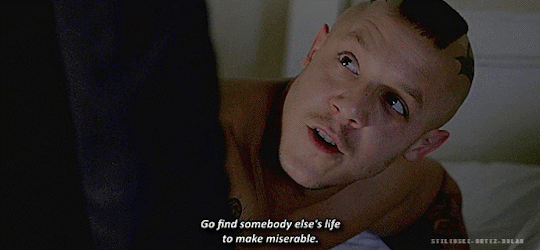
Being with Juice was always a roller coaster, since the first day you met him. You should’ve seen the red flags before you spiraled into a relationship with the biker. So young and so stupid. It wasn’t like you had much of a choice.
It’s been 5 long years. You loved him more then anything but you felt like your relationship was stuck. Maybe you both got to comfortable with how everything is and now it’s just stuck.
Juice wasn’t perfect. He had his flaws but so did you. He never had a steady income, well the weed dispensary was kind of steady if he wasn’t spending all his money there. Juice always put the club first no matter what, at first you loved his loyalty to his brothers but now you almost seemed to resent that you’d never come first.
The longer time past the more it all started to bother you. You thought he’d change, you thought things would change and that both of you could have a real future together. Or at least be living together instead of him crashing at your place ever now and then.
Back before you met him you had a plan. You where going to finish college, get a head start in your career. Then find someone who’d you want to marry and start a life with, a family. But then Juice got thrown in your path.
You did finish school, and got a decent job. Now all you did was wait for Juice but didn’t seem like he was one the same page as you where. Anytime you tried to bring it up he’d make excuses.
Today was like any other day. You haven’t heard much from him, haven’t seen him all week since he was busy with club shit. He promised you that he’d be over, you should’ve know he wasn’t going to be here to actual have time to go on a date. He’d probably show up in the middle of the night.
You gave up hope around 1 am before deciding to go to bed. It was probably closer to 4 am when you heard Juice harley pull up. He had a key, he made his way in. He made his way into your bedroom, stripping to his boxers before dropping in the bed next to you. His large arms went around you pulling your body to his. You wanted to enjoy this but it wasn’t the same anymore.
“Where have you been?” You asked sighing as you felt him place a few kisses across my shoulder.
“At the clubhouse.” Juice mumbled into you shoulder. You could smell the whiskey and beer off his breath.
“What where you doing out there till 4am?” You asked turning around in his arms to face him.
“God Y/N I don’t need you nagging at me right now. I’m pissed drunk and tried.” Juice groaned back. He hated that you always had to say something.
“Juice I’m fucken tried of you showing up at all hours of the night drunk.” You said looking at him. You knew the fights was going to happen, it was the same fight always.
“I’m not doing anythin’. God you don’t trust me at all.” He mumbled laying on his back so he wasn’t facing you anymore.
“That’s not the point. Is this ever going to change? Is it ever going to be any different?” You asked him frowning. It wasn’t like you wanted to have this fight with him either at 4am.
“Like what?” he asked running his hands across his face.
“I don’t know when are you going to grow up? Don’t you want to get married , have a family? or at the least live together?” You asked finally letting all out on him. He knew you wanted all that, you’ve been told him what you wanted. He just always had some excuse.
“Y/N I’m still figure things out godamn.” He mumbled not being able to look at you.
“for how long? Another 5 years?” maybe 10 years?” You asked frustrated. You loved him more then anything.
“I don’t know! go find someone else’s life to make miserable then.” Juice mumbled before turning over away from you.
“If you don’t know now, then you’ll never fucken know.” You mumbled turning away from him. You couldn’t say another word to him. You cried in silence as he snored next to you in bed.
You never imagine this is how it would end. You never thought you’d ever end. Starting over with someone else felt like a foreign concept. You never thought you where making him miserable. Why was it so hard to separate love and being logical.
This weekend I made some new buttons for Montreal Comic Con, which is coming up FAST! I thought the Wonder Woman movie was pretty rad, ESPECIALLY THE AMAZONS AND THEMYSCIRA HOLY CRAP I WANT TO LIVE THERE AND BE A BADASS WARRIOR. *ahem* for real the movie was great and if you haven’t seen it yet what are you waiting for?
Post link
“I’ve seen a man, a blind man who can see… because his other senses are so amplified… And that woman over in Hell’s Kitchen snapped a man’s neck because he was… mind-controlling her. And this other man who survived a shotgun blast to his head and recovered from a brain hemorrhage in a few hours!”
Post link
I love matt murdock so much but mans is micromanaging the shit of that small chunk of midtown. He’ll see one of kingpin’s guys go up one block into columbus circle and it’s not his business anymore. No wonder he didn’t do anything about the Tracksuit Mafia in Hawkeye those bitches were at Rockefeller that’s not a him problem anymore. The Chitari in 2012? You want him to go to GRAND CENTRAL? Nah, that’s 1 to 42nd then a transfer on the 7 that’s outta the way. Vulture was all the way in Coney Island you think mans is gonna go to BROOKLYN? Nope, not his problem.
At least Luke Cage has Harlem but I wonder if he’d stretch that into the heights.
defenders is just matt being down bad for his girl and adamant that he can fix her psychotic ways and the rest of them bullying him for it and i love it
‘LUKE CAGE’ EARLY REVIEWS ROUND UP!
Deadline - “One of the most socially relevant and smartest shows on the small screen you will see this year. The first season is one of the best shows on air”
Collider - “Netflix delivers the hero we need. Hits all the right notes. Excellent. 5/5 stars.”
ComicsBeat - “Marvel’s new series shines bright. A triumph of sight and sound. Easily Marvel’s best TV series to date. Exceptional on all fronts”
Gizmodo - “The unapologetically black hero we’ve been waiting for. Definitely worth watching”
Comic Book - “A journey that fans should count themselves lucky to be a part of. 5/5 stars.”
Den of Geek - “The quality and commitment to characterization and story on display in Luke Cage feels miles ahead of other efforts”
Heroic Hollywood - “Definitely delivers. September is the month of Sweet Christmas all thanks to Luke Cage”
The Heights - “If you’re looking for a superhero show that takes a deep dive into the mind and life of an emotionally complex, socially relevant, and hulking badass in an uncompromising and graphic setting, then look no further than Luke Cage.”
Luke Cage is going to be incredible!
Post link

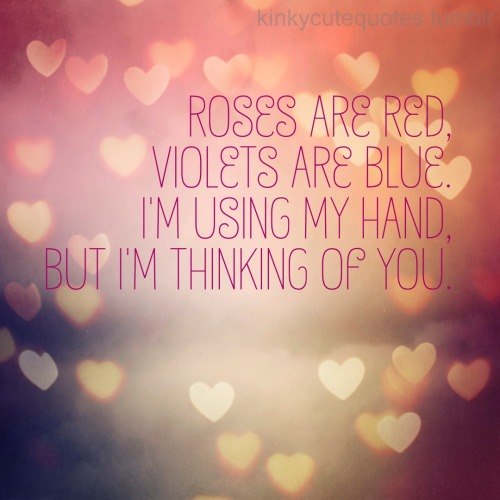

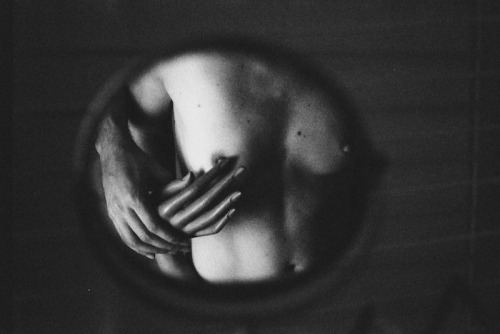




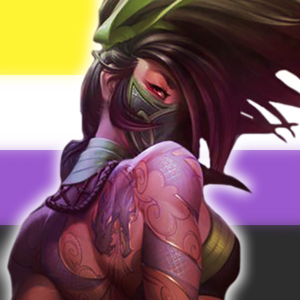


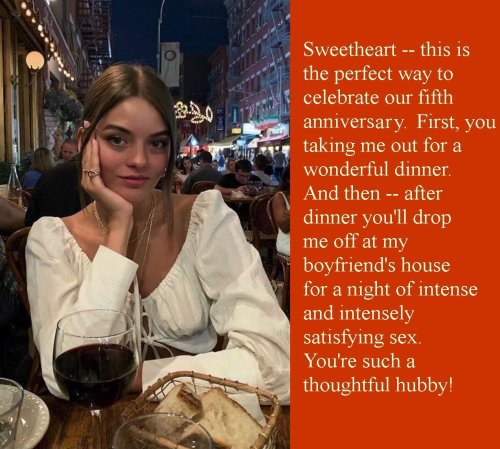
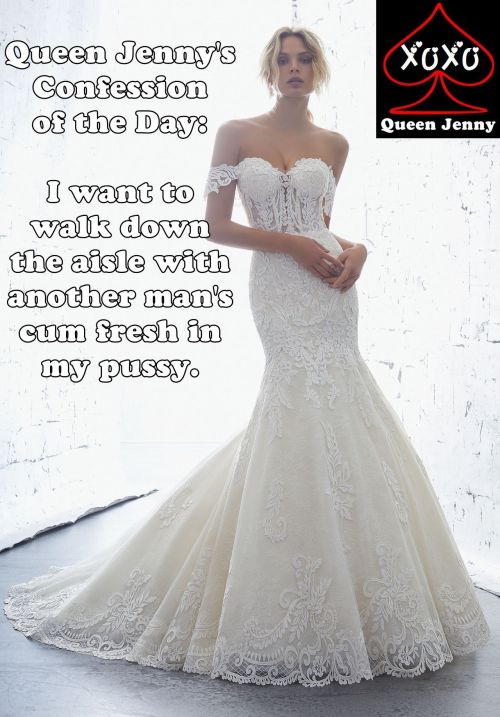

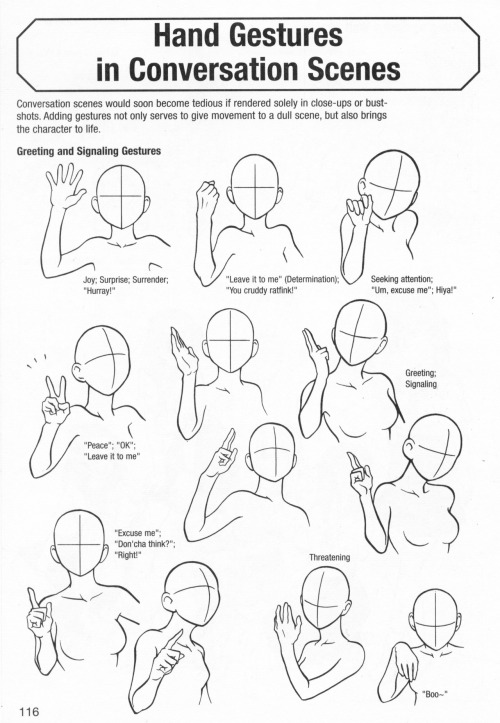








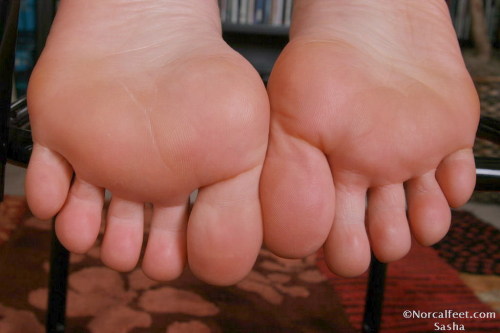




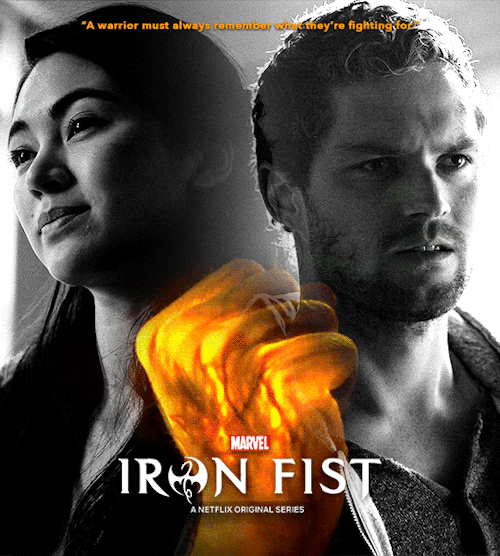

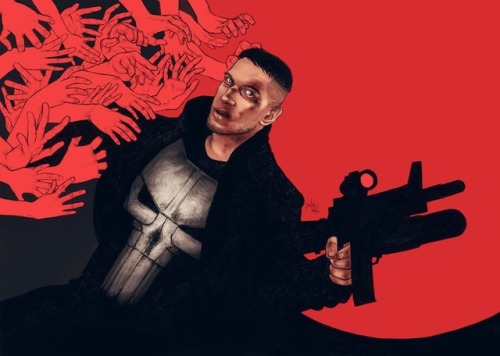


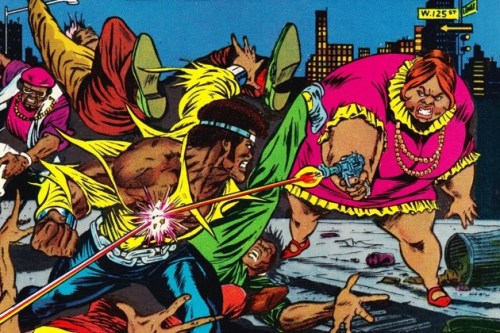
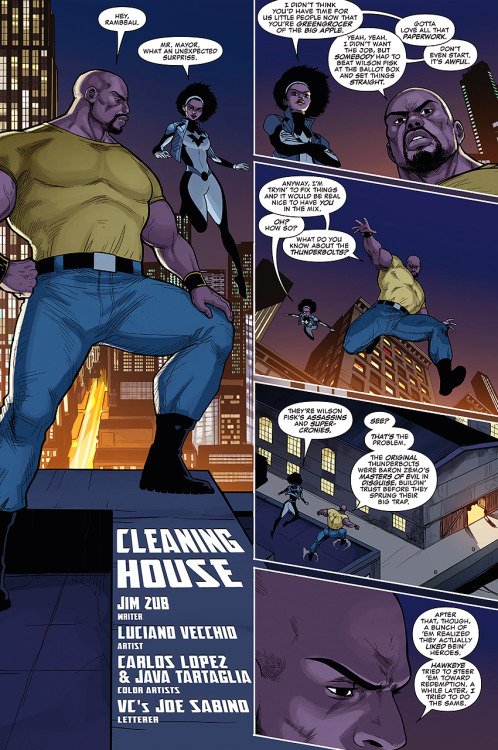
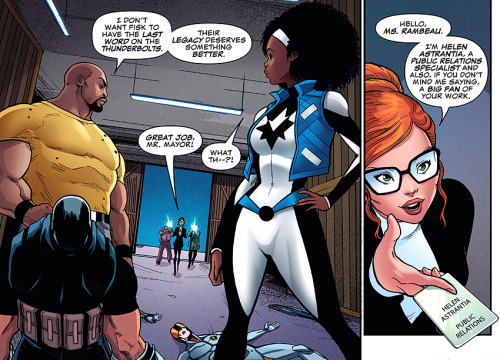
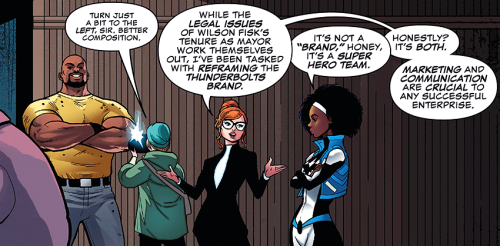

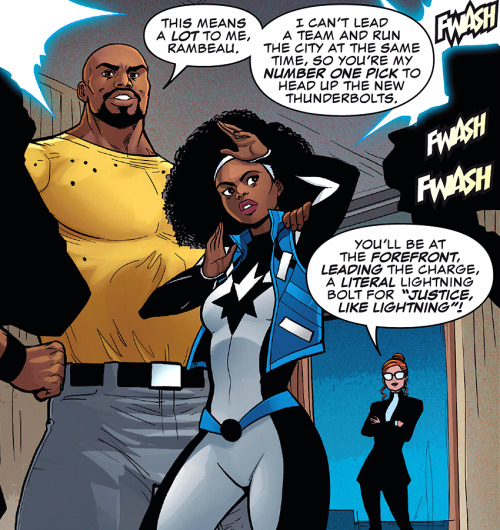


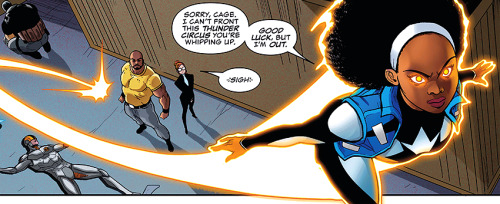




![Marvel Entertainment for Emmy Magazine. [x] Marvel Entertainment for Emmy Magazine. [x]](https://64.media.tumblr.com/ca143b157ff13e8baee38941f8085063/tumblr_orhdhmBxF31rg1n5go2_500.jpg)
![Marvel Entertainment for Emmy Magazine. [x] Marvel Entertainment for Emmy Magazine. [x]](https://64.media.tumblr.com/0239d4b80f84fa1c117852bb4ce978b8/tumblr_orhdhmBxF31rg1n5go1_500.jpg)
![Marvel Entertainment for Emmy Magazine. [x] Marvel Entertainment for Emmy Magazine. [x]](https://64.media.tumblr.com/8e1978eca228fa6d30a4003b0c5549c3/tumblr_orhdhmBxF31rg1n5go3_500.jpg)
![Marvel Entertainment for Emmy Magazine. [x] Marvel Entertainment for Emmy Magazine. [x]](https://64.media.tumblr.com/7dd46ad2c171570798bdc350baf55ff7/tumblr_orhdhmBxF31rg1n5go4_500.jpg)
![Marvel Entertainment for Emmy Magazine. [x] Marvel Entertainment for Emmy Magazine. [x]](https://64.media.tumblr.com/777b51e84a49d80f157a3a05c58f5b65/tumblr_orhdhmBxF31rg1n5go6_500.jpg)
![Marvel Entertainment for Emmy Magazine. [x] Marvel Entertainment for Emmy Magazine. [x]](https://64.media.tumblr.com/4ec5f3fb89619acc5979362458f429e1/tumblr_orhdhmBxF31rg1n5go5_500.jpg)
![Marvel Entertainment for Emmy Magazine. [x] Marvel Entertainment for Emmy Magazine. [x]](https://64.media.tumblr.com/c747605e0207ef77e7522b4aa8db8404/tumblr_orhdhmBxF31rg1n5go7_500.jpg)
![Marvel Entertainment for Emmy Magazine. [x] Marvel Entertainment for Emmy Magazine. [x]](https://64.media.tumblr.com/a7f2cf15c3cf00754754735b1c8ffde4/tumblr_orhdhmBxF31rg1n5go8_500.jpg)
![Marvel Entertainment for Emmy Magazine. [x] Marvel Entertainment for Emmy Magazine. [x]](https://64.media.tumblr.com/9baf7f2b461fa447798cefdcd1ce1f22/tumblr_orhdhmBxF31rg1n5go9_500.jpg)
![Marvel Entertainment for Emmy Magazine. [x] Marvel Entertainment for Emmy Magazine. [x]](https://64.media.tumblr.com/c195aa38868fa4963d7d2050b35c5c26/tumblr_orhdhmBxF31rg1n5go10_500.jpg)
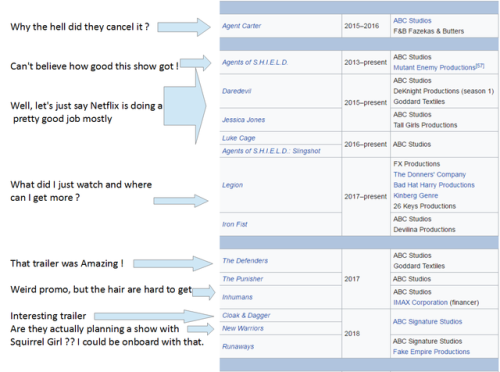
![Official promo pictures for the Defenders [x] Official promo pictures for the Defenders [x]](https://64.media.tumblr.com/48180b809aa6c2657a1cf85574843129/tumblr_opfqszb0hy1rg1n5go1_500.jpg)
![Official promo pictures for the Defenders [x] Official promo pictures for the Defenders [x]](https://64.media.tumblr.com/7cace6b11b058d4735f484c15ab8ea4b/tumblr_opfqszb0hy1rg1n5go3_500.jpg)
![Official promo pictures for the Defenders [x] Official promo pictures for the Defenders [x]](https://64.media.tumblr.com/aef4776ae975b815bc763802bf872975/tumblr_opfqszb0hy1rg1n5go2_500.jpg)
![Official promo pictures for the Defenders [x] Official promo pictures for the Defenders [x]](https://64.media.tumblr.com/94600d038b1146bcc27c20336443baf7/tumblr_opfqszb0hy1rg1n5go4_500.jpg)
![Official promo pictures for the Defenders [x] Official promo pictures for the Defenders [x]](https://64.media.tumblr.com/6d8dc2d9c5591684ae2e9e8e9251a13e/tumblr_opfqszb0hy1rg1n5go6_500.jpg)
![Official promo pictures for the Defenders [x] Official promo pictures for the Defenders [x]](https://64.media.tumblr.com/ed7665a1178270c018927941d5426094/tumblr_opfqszb0hy1rg1n5go7_500.jpg)
![Official promo pictures for the Defenders [x] Official promo pictures for the Defenders [x]](https://64.media.tumblr.com/aeb85e6919f6fedd32bd634603d5e126/tumblr_opfqszb0hy1rg1n5go5_500.jpg)
![Official promo pictures for the Defenders [x] Official promo pictures for the Defenders [x]](https://64.media.tumblr.com/b74445a1e53895f5e560ff4802f44084/tumblr_opfqszb0hy1rg1n5go9_500.jpg)
![Official promo pictures for the Defenders [x] Official promo pictures for the Defenders [x]](https://64.media.tumblr.com/1da639821f9e96abb04e03cc139474d9/tumblr_opfqszb0hy1rg1n5go10_500.jpg)
![Official promo pictures for the Defenders [x] Official promo pictures for the Defenders [x]](https://64.media.tumblr.com/cc7f1428c089ae54d8941fe882871485/tumblr_opfqszb0hy1rg1n5go8_500.jpg)
